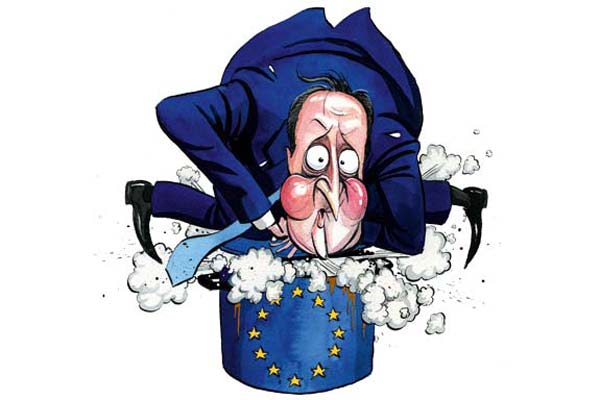Boris Johnson’s speech this week is one of the few domestic issues really animating Westminster. He will argue that the UK should not be ‘frightened’ of leaving the EU, supposedly in contrast to David Cameron, who has always made clear that he wants to remain in the bloc.
But it’s worth remembering that Cameron himself has started to shift recently on how he’d vote in the 2017 referendum. When he returned to the Commons after losing his fight against Jean-Claude Juncker’s bid to become President of the European Commission, Cameron changed his language on that vote. Where previously he had argued that there was no doubt he’d be voting to stay in the European Union because he knew that his renegotiation of Britain’ relationship with Europe would be successful, the Prime Minister introduced the conditional into his line on the vote. He told Douglas Carswell:
‘Well I have set out my approach which is to always follow the national interest, now I think it is in the national interest to renegotiate our position in Europe, to secure the changes that I have set out, and I don’t start a negotiation believing that I won’t achieve those things, I set out wanting to achieve them, wanting to come back to this country, but I will always do what is in the national interest.’
This was a sufficiently significant shift from Cameron to please eurosceptics. And his appointment of Philip Hammond as Foreign Secretary in the reshuffle was another shift that suggested the Prime Minister was at the very least not afraid to appoint someone who is themselves not afraid to leave the EU.
So Boris’ speech is coming at a less convenient time than it could have done for the Prime Minister. He has at least hinted that he might have to consider a Brexit, however reluctantly. But the question is whether the Prime Minister is able to convince European leaders that he really is serious about getting serious reform, to the extent that Britain could leave if they fail to deliver. At the moment those he discusses these matters with seem to oscillate between irritation at his ‘threats’ and sufficient disbelief that those threats are sincere to continue thwarting his ambitions on matters such as Juncker.







Comments